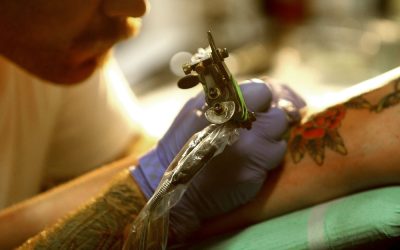Sadly, 45% of 9th graders, 50% of 10th graders, 58% of 11th graders and 65% of 12th graders admit to binge drinking at least once. Teenagers often feel invincible—that nothing bad will ever happen to them—so preaching about the long-term health dangers of underage drinking may fail to discourage them from using alcohol. Instead, talk to your teen about the effects drinking can have on their appearance—bad breath, bad skin, and weight gain from all the empty calories and carbs. You can also talk about how drinking makes people do embarrassing things, like peeing themselves or throwing up.
- Here are more resources on what to do if you suspect your teenager is drinking.
- We asked them about their alcohol use, reasons for drinking, alcohol-related outcomes, health and more.
- It is caused by alcohol slowing down the body’s functions (for example, breathing, heart rate, and gag reflex), thereby potentially leading to choking, coma, stopped breathing, stopped heart, and death.
- Parents and teachers can play a meaningful role in shaping youth’s attitudes toward drinking.
Some people are surprised to learn that teen alcoholism exists. However, research suggests that teen alcohol abuse can be an important problem. In general, the younger a person is when they start drinking, the more at risk they are of alcoholism. Studies show that teens who start drinking before the age of 15 are at a higher risk of alcohol abuse than people who start drinking at older ages. While, binge drinking does not necessarily make you an alcoholic, it is one of the primary contributing factors to teenage alcoholism.
Alcohol and teenagers
Teenage alcoholism is a tragically common problem that results in thousands of deaths every year. The younger a person begins drinking, the more likely they are to be affected by alcoholism later in life. Poverty and neighborhood violence are community risk factors for teens to develop alcohol use disorder.
CDC: Drug and alcohol use on the rise among teens to cope with depression and anxiety – WBRC
CDC: Drug and alcohol use on the rise among teens to cope with depression and anxiety.
Posted: Tue, 13 Feb 2024 08:00:00 GMT [source]
Studies have shown that the earlier your child uses alcohol, the more problems they’re likely to experience later in life, so it’s never too early to start the conversation. It can even be easier to have these conversations early on in your child’s adolescent years, when they aren’t as rebellious and are less likely to be have already been exposed to underage drinking. Since alcohol is a depressant, using it to self-medicate can make problems even worse. If your child is regularly drinking on their own or drinking during the day it could be they’re struggling to cope with a serious underlying issue.
Warning Signs of Underage Drinking
The NIAAA Alcohol Treatment Navigator can help you recognize and find high quality treatment for alcohol use disorder. If you drink excessively, seek medical help to plan a safe recovery teenage alcoholism as sudden abstinence can be life threatening. NIAAA’s Rethinking Drinking can help you assess your drinking habits and provides information to help you cut back or stop drinking.

Enter your email address – we’ll keep you informed on the latest news and share resources for parents and mentors. Parents have several options if they suspect teenage alcohol use in their home. In some people, the initial reaction may feel like an increase in energy.
Treatment and Prevention
The goal is to meet your teen where he or she is and work together to prevent the problem before it starts — or solve it, with love, as a family. So, what do parents do if they suspect their underage child is using alcohol? Talk It Out’s community education and outreach program helps parents give their kids a way to steer clear of teen alcohol use. Mental-health professionals should not minimize the approach to those who have experimented with alcohol, since infrequent use can progress to the more serious stages of alcohol use if not addressed.
- Because denial is common, you may feel like you don’t have a problem with drinking.
- The average age of young people trying alcohol for the first time has also risen, from 14.7 years in 2001 to 16.2 years in 2019.
- If you do not have access to a phone contact Web Poison Control Services for online assistance.
Attempting to dive straight in to a discussion about drinking may be a quick way to trigger an unpleasant fight. A better tactic is to find an area of common ground, such as sports or movies. Once you’re able to peacefully discuss a common interest, it may be easier to get your teen talking about the more sensitive issue of alcohol use.
Alcohol and the Adolescent Brain
Falling grades or getting caught drinking can lead to or expulsion. In addition, high school students who drink are also more likely to drop out of school. Even if they remain in school, teen alcohol use can create social problems such as losing friends as well as other issues in their relationships.